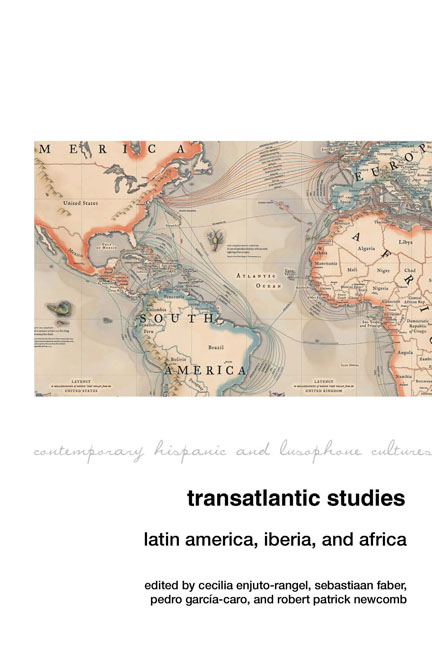Book contents
- Frontmatter
- Contents
- Introduction: Transatlantic Studies: Staking Out the Field
- Transatlantic Methodologies
- Transatlantic Linguistic Debates
- Transatlantic Displacement
- Transatlantic Memory
- Transatlantic Postcolonial Affinities
- Transatlantic Influence
- Epilogue: The Futureâif There Is OneâIs Transatlantic
- Index
22 - Transatlantic Trotsky
- Frontmatter
- Contents
- Introduction: Transatlantic Studies: Staking Out the Field
- Transatlantic Methodologies
- Transatlantic Linguistic Debates
- Transatlantic Displacement
- Transatlantic Memory
- Transatlantic Postcolonial Affinities
- Transatlantic Influence
- Epilogue: The Futureâif There Is OneâIs Transatlantic
- Index
Summary
In 1916, the year preceding the Russian Revolution, internationalist Leon Trotsky was expelled from France […] politely escorted across the Spanish border by French police. A few days later Madrid police arrested the internationalist and lodged him in a “first-class cell” at a charge of one-and-one-half pesetas per day. Subsequently Trotsky was taken to Cádiz, then to Barcelona, finally to be placed on board the Spanish Transatlantic Company steamer Montserrat. Trotsky and family crossed the Atlantic Ocean and landed in New York on January 13, 1917.
Antony Sutton, Wall Street and the Bolshevik Revolution, 10I dreamed that we were all in Trotsky's house, with the dog, and we couldn't get out was the leitmotif, and we thought at the time, as the vertigo of the thought swallowed us up, that the phrase condensed the entire history and destiny of the Left over the last forty years, our own history and our destiny.
Tununa Mercado, In a State of Memory, 89Few historical figures of the twentieth century are as intriguing from a transatlantic perspective as Leon Trotsky. Trotsky (Lev Davidovitch Bronstein, 1879–1940) can be thought of as “transatlantic” in at least three ways. First, and perhaps most obviously, we can consider Trotsky’s transnationalism in terms of the internationalist basis and verve of his political theories. Second, we might explore how Trotsky's exilic fate placed him in contact with intellectuals, followers, and enemies in multiple linguistic and cultural communities in Europe, Turkey, and the Americas— places in which he could further observe the “unevenness” of capitalism in space and time. Third, we might consider the cultural representations of the Old Man's exile and assassination at the hands of a Catalan Stalinist agent, Ramón Mercader, in Coyoacán, Mexico in 1940, whereupon the revolutionary leader becomes a vessel of Hispanic Atlantic contemplation and circulation.
Trotsky, together with Vladimir Lenin, led the Bolshevik seizure of power in Russia in the early stages of Soviet communist rule. Long before he became the target of Stalin's cross-continental manhunt that would end in his spectacular assassination, Trotsky faced a perpetual political banishment with a dénouement catastrophic for his family, his followers, and the future of his political philosophy.
Information
- Type
- Chapter
- Information
- Transatlantic StudiesLatin America, Iberia, and Africa, pp. 260 - 274Publisher: Liverpool University PressPrint publication year: 2019
